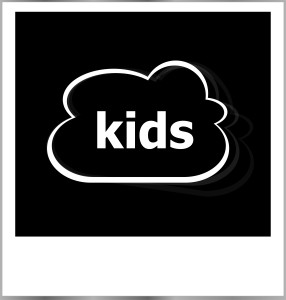A is for Apraxia. On Monday, we took at look at Apraxia of Speech in children. Specifically, we outlined the types of apraxia of speech and related symptoms. The most common type of apraxia of speech in children is developmental, which means it is a neurologically based speech disorder. While some children with Developmental Apraxia of Speech (DAS) had specific prenatal or birth injuries, for the most part, there is no specific cause of DAS. This month, we will plan to take a look into the subject of Apraxia of Speech in children in more depth.
Speech Therapy for Kids: 4 Topics to Discuss With Your Speech Therapist
At Home Ideas Language Development News Parents' Corner School Speech Disorders Speech Therapist Speech Therapy for Kids Speech Therapy Techniques State Resources
Our series this week talks about your child’s first visit to a speech therapist. Once your child has been diagnosed with a speech impediment or a speech disorder and your appointment is set, you want to make sure to be as knowledgeable and organized as possible in order to get the best out of the first visit. We have given you a handful of tips on what to expect from your first visit to the speech therapist. After the visit is complete, you can expect your SLP to review the results of your child’s evaluation and recommend a treatment plan. But there should be more to it. The results aren’t always cut and dry. You will want to make sure to cover the following topics so you are well informed about your child’s treatment going forward.
4 Easy Tricks for Speech Therapy at Home
Articulation Disorders At Home Ideas Language Development News Parents' Corner Speech Disorders Speech Therapy Techniques
 This week we’ve been discussing ways to tell if your child has a speech disorder, and evaluating if the recommended Communication Milestones are a good indicator of a possible speech impediment. Whether or not your child has been diagnosed with any speech challenges, there are many tips and tricks for speech therapy at home that you can do to help build your child’s communication skills, especially as a toddler. Language building is essential during the first years of a child’s life, as this is when most of the pathways for developing speech, language and cognitive skills are formed.
This week we’ve been discussing ways to tell if your child has a speech disorder, and evaluating if the recommended Communication Milestones are a good indicator of a possible speech impediment. Whether or not your child has been diagnosed with any speech challenges, there are many tips and tricks for speech therapy at home that you can do to help build your child’s communication skills, especially as a toddler. Language building is essential during the first years of a child’s life, as this is when most of the pathways for developing speech, language and cognitive skills are formed.
Don’t Talk With Your Mouth Full! Building Communication Skills at the Dinner Table
Language Development Speech Therapy TechniquesImage Courtesy of www.nashvilleparent.com
Eating together as a family has been shown to improve academic scores for kids, build stronger family relationships, and contribute to healthier eating habits. You can use the dinner table, too, as a centerpiece for building communication skills with your kids. Continue reading
Tips for Keeping Kids Motivated in Speech Therapy
Speech Therapy TechniquesDespite the bubbles and the iPads, speech therapy isn’t always all fun and games, it can be hard work! Speech therapy can be challenging for a host of reasons. It often occurs in small spaces, at a tabletop, and a variety of demands are placed on the child. While the goal of therapy is to work towards achieving goals, it’s also to keep kids motivated. Like most things in life, motivation is key and can have a significant impact on progress. A good speech pathologist considers not only the therapy goals but the variables that might impact a child’s motivation and attention during therapy to achieve those goals.



